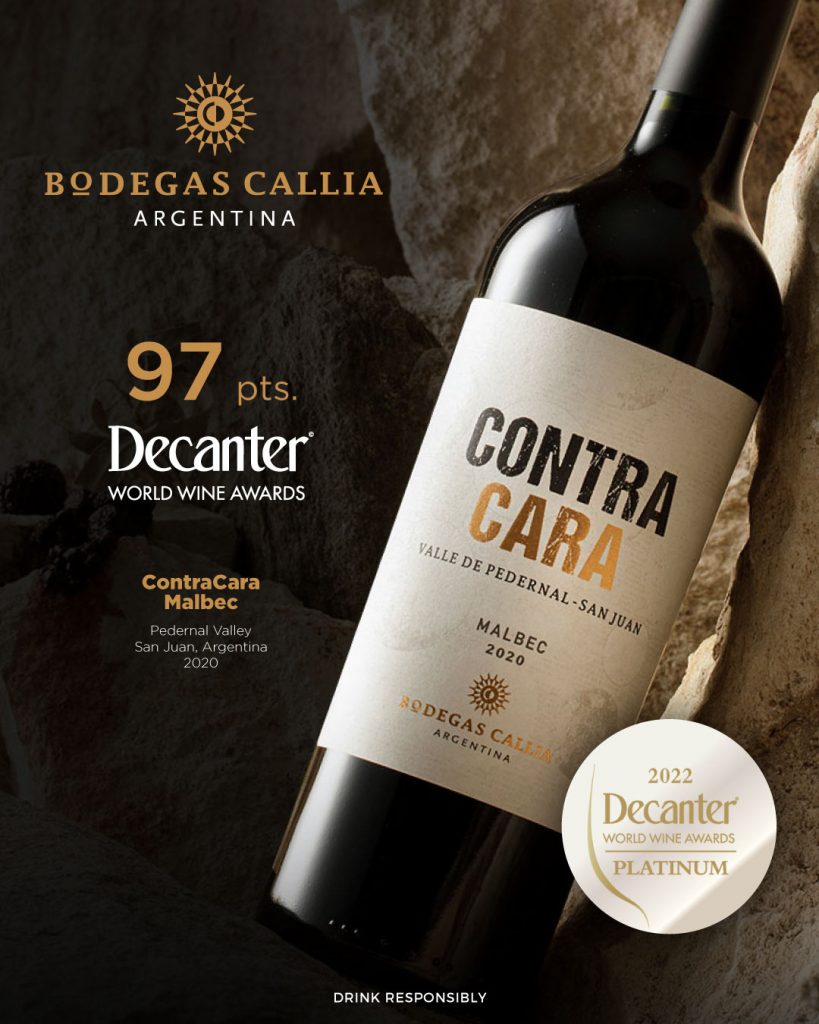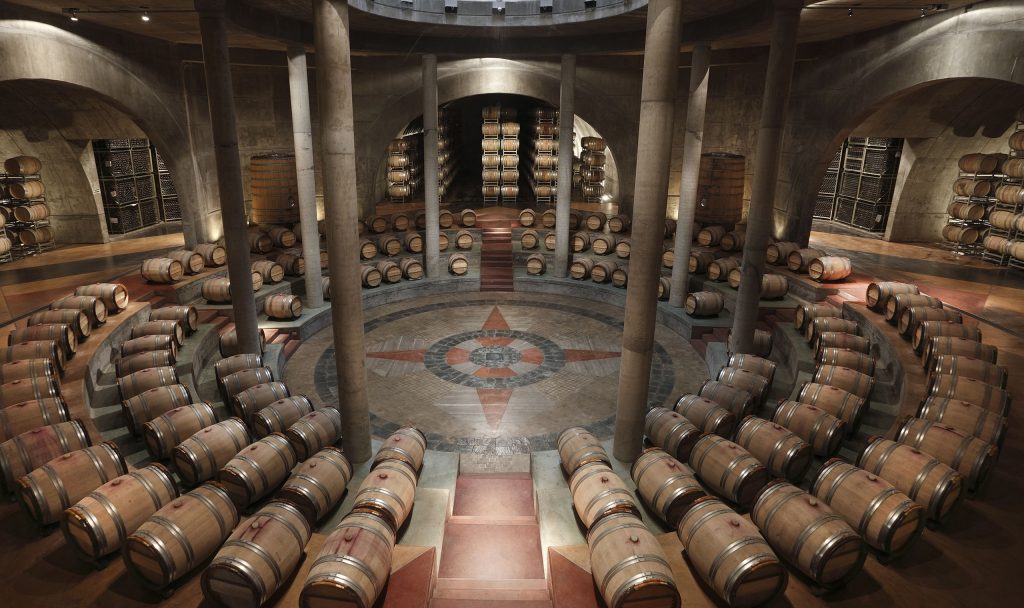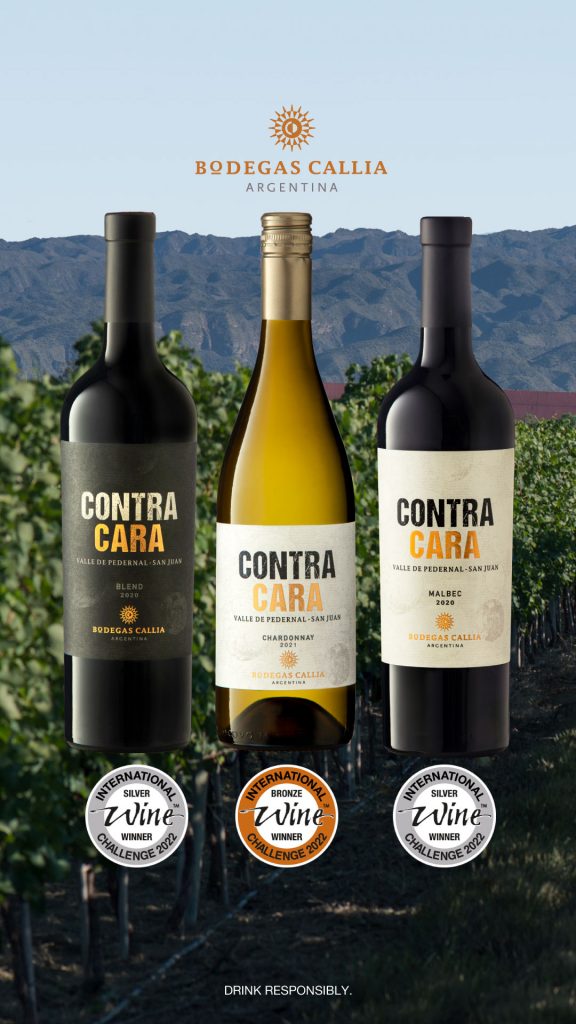Bodegas Salentein: Pioneering Spirit in the Uco Valley
Visiting the region of Mendoza in 1995, Dutch entrepreneur Mijndert Pon saw a unique potential for the production of high quality wine, particularly Malbec, grown at high altitude. And so Bodegas Salentein was born, producing their first vintage in 1999 from a brand new winery built in the previous year. Fast forward to 2022 and Bodegas Salentein’s pioneering spirit continues to push the boundaries in research and development, backed by the expertise of legendary Argentinian winemaker José ‘Pepe’ Galante and a dedicated team of winemakers.
The purchase of Bodegas Callia in neighbouring San Juan province in 2002 and the new Portillo winery in the Uco Valley in 2004 allowed the Salentein Family of Wines to offer a comprehensive portfolio of brands across both regions, with a recent slew of awards including a Decanter Platinum Medal in 2022 for Contracara Malbec from the Pedernal Valley in San Juan.
It’s not just about the juice. Bodegas Salentein has also put the Uco Valley firmly on the map as a destination for wine tourism, with the opening of Killka, a museum and centre for culture and gastronomy in 2006, alongside Posada Salentein, an exclusive ranch nestling among the vines and the perfect place to wind down after a hard day’s tasting.
We caught up with Robert Bruijnzeels, Commercial Director for Europe and Asia on the latest news from winery and how to spend the perfect day in the Uco Valley.
How has the Salentein Family of Wines fared as a business over the last two years and what challenges have you faced?
As most likely other wine producers have experienced, it was a time in which we could reflect on how our distribution is divided over the different channels. During the last two years our off-trade business grew, on-trade went down, and e-commerce went up during Covid lockdowns. Consequently, we steered our sales a bit more towards off-trade, while not lowering attention for the on-trade, where our wines are well represented. Hence, our partnership with Off-Piste came at the right time, and we are excited to enter our wines across the off-trade in the UK with Off Piste!
What excites you about the Argentinian wine market at the moment?
After many years of a boom for Argentinian Malbec in general, Argentina is nowadays, as a wine producing country, putting much focus on sub-regions in the wine areas of Argentina. One example is our Salentein wines from the GI San Pablo in the Uco Valley, or our Contracara wines from the Pedernal valley in San Juan. Malbecs from these different sub-regions show a different profile due to different terroir between those sub-regions.
Salentein were pioneers in the Uco Valley over twenty-five years ago and helped forge a path for the Argentinian wine industry. Can you tell us something about your latest developments and any research into higher altitude growing?
We are investing now more than ever in soil studies in our vineyards in both the Uco and Pedernal Valleys. These studies are giving us more and more valuable insight in the differences of soil, which helps our winemakers define in microscopic detail which varietal will do well in which part of our land. This also helps us to vinify different profiles of wines because of these differences in soil in our vineyards.
We are also doing climatic studies in the higher part of our property in GI San Pablo, between 1,550 and 1,700 metres above sea level. Using information from the soil studies, we planted Riesling and some specific Dijon quality clones of Pinot Noir and Chardonnay at those altitudes in 2021.
Do you think Argentina is heading towards a more defined hierarchy or structure of vineyard sites based on altitude and soil type?
Definitely – the creation of more and more G.I.s (Geographical Indications) in the country shows this.
It’s not just Mendoza and the Uco Valley that can offer unique high-altitude sites – can you tell us something about Bodegas Callia and the Pedernal Valley in San Juan?
The Pedernal Valley has always been used by San Juan wineries as a source for high-quality grapes to blend in and increase quality of their wines from the lower altitude vineyards. However, with Bodegas Callia we are now producing wines made with 100% of grapes coming from the Pedernal Valley.
What makes the conditions of Pedernal valley so special is the combination of soils with presence of limestone rocks at altitudes of between 1,300 and 1,500 metres above sea level. This is very rare in the world of wine, and results in a very fresh, elegant and unique style of wine in Argentina.
Do you have any predictions for the future of Argentinian wines?
Argentina will continue to grow and be the point of reference for quality wines from South America!
And finally, if we were lucky enough to spend some time at Bodegas Salentein, what would be the perfect day?
Come and visit us on a day in springtime – in November – with a pleasant climate, and do a horseback ride through our San Pablo vineyards, situated at 1,600 metres altitude. A unique environment of high trees surrounds the vineyards, and beside these vineyards a creek runs down with meltwater from the snow tops of the Andes mountains.
For more information visit Bodegas Salentein’s website or drop us a line: info@offpistewines.com





